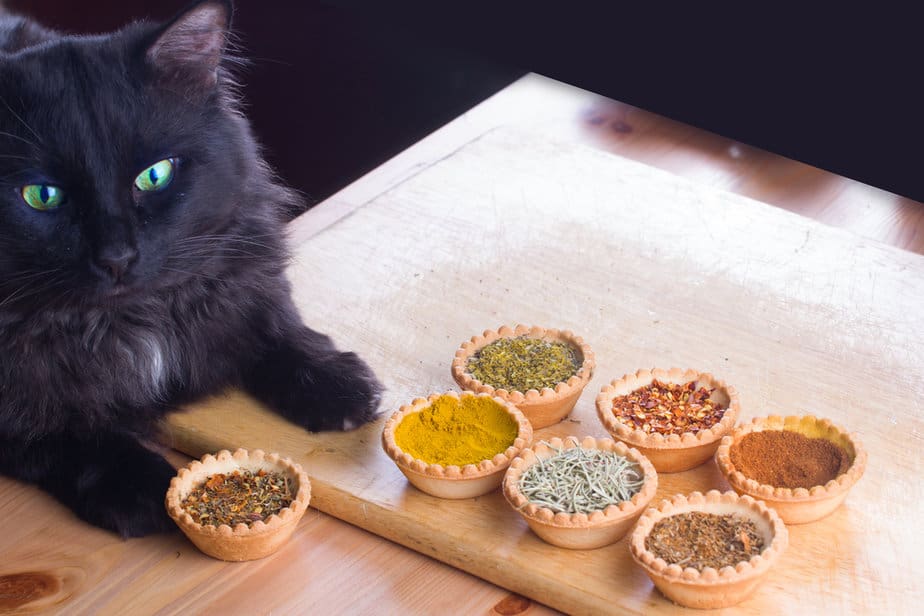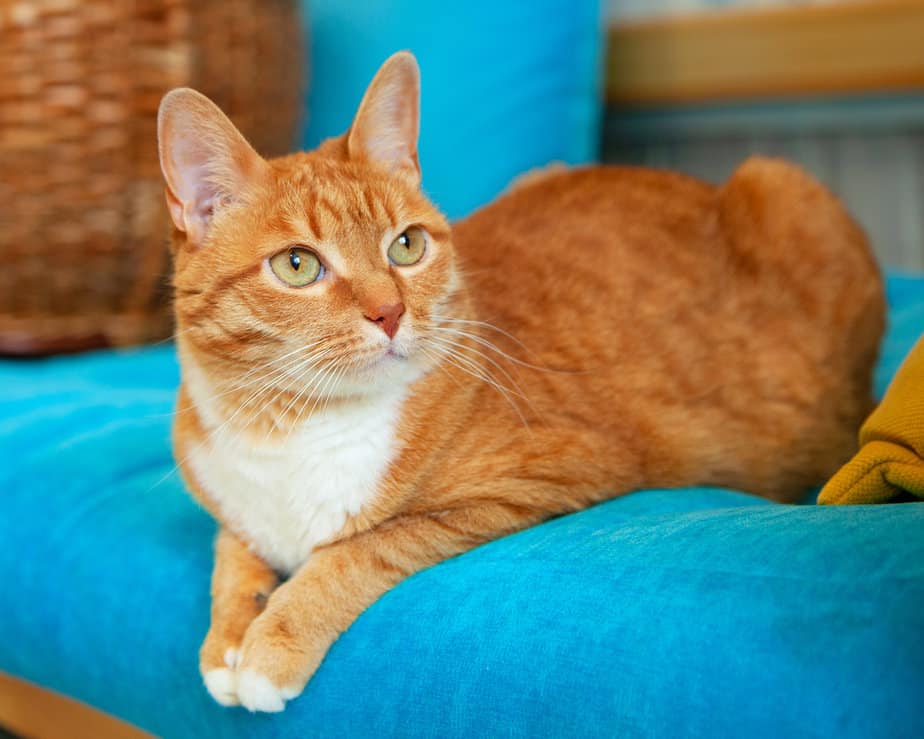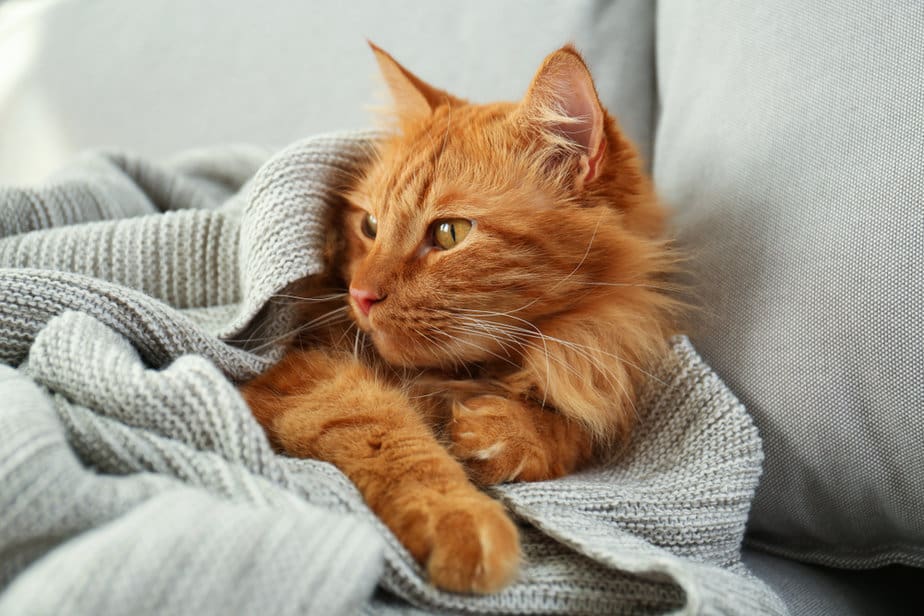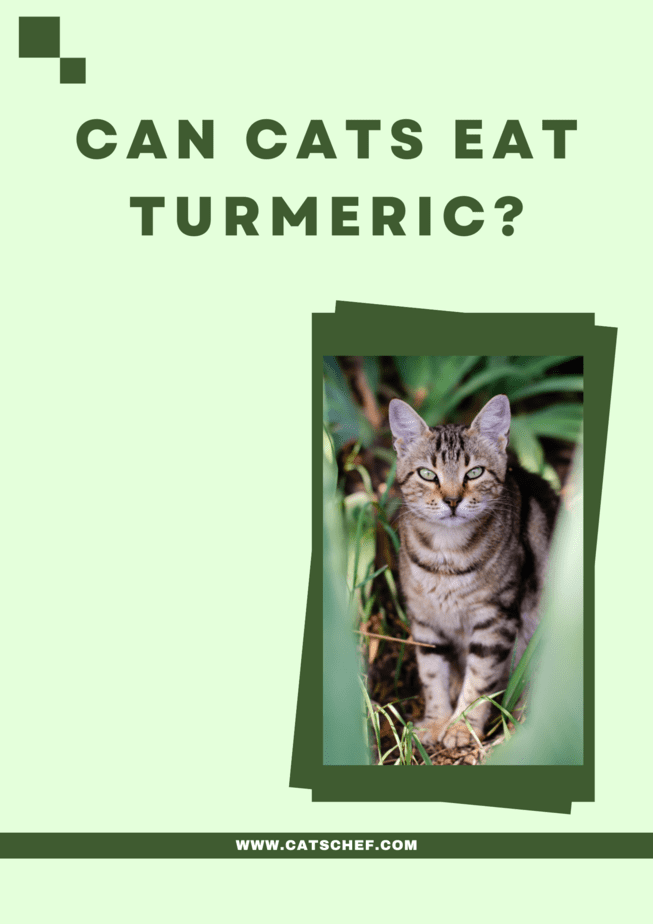This spice can commonly be found in the kitchen, so it’s not unusual to find it in your cat’s paws as well. We know they love hanging out by the table and waiting for bits of food to drop, but can cats eat turmeric?
Your pet might remind you of Ratatouille and that little furry chef that tastes the ingredients. Does she like sniffing them before you even have the chance to use them in your dish?
I know what you’re talking about. It’s like she’s my supervisor and I’m only trying my hardest to gain her approval. You’d think spices aren’t something that could potentially hold your cat’s attention.
Well, they never cease to amaze us. It can be quite shocking when you catch her licking up some of the turmerics straight out of the jar. Their intuition is usually never wrong, but we must question their choices regardless.
It’s just something cat parents do. Sometimes, even if it seems they know what they’re doing, our furry friends may get into trouble.
I don’t know about your feline, but mine is quite mischievous and likes to get her paws dirty. She’s not afraid to venture on her own and patrol the kitchen pantry every once in a while.
I guess you could say that she’s the real paw patrol then. But it’s all fun and games until their curiosity gets the best of them. We know what killed the cat, but is turmeric as dangerous as curiosity is?
Can cats eat turmeric and what if they do? Are you supposed to feed them this spice? How are they going to react? So many questions you need an answer to. Rest assured because I got you.
Can cats eat turmeric?

This special herb is known across the world for its flavor and healing abilities. Turmeric is widely used in Chinese traditional medicine and has been proven to have an array of health benefits.
Also known as Curcuma, this herb comes from the ginger family. Just like ginger, it can find its place on the dining table because of its strong aroma and flavor.
However, people have been using it to treat various illnesses and prevent certain diseases. It’s so healthy, so you must wonder can cats eat turmeric as well.
It would be a real shame if they’re denied something this advantageous. That’s why I’m more than happy to tell you that turmeric is completely safe for your pet and doesn’t present any hazard to her.
Moreover, not only is it safe, but felines can also benefit from it. Its amazing anti-inflammatory properties can help our furry friends as well!
I know we always fear human foods because they’re usually unhealthy or poisonous to felines. With turmeric, you won’t have a care in the world.
You can relax now knowing that every time your cat took a sniff and a lick of this herb, she only gained from the experience! I guess her intuition pays off after all.
But let’s see just what is it that makes turmeric so healthy for both you and your furry pal. Also, let’s figure out how and when you can use this to benefit your pet.
Can cats eat turmeric? All the properties say yes!

Now, let me tell you that there are a lot of health benefits that come from this spice. We already know some of them, but you’ll be surprised once you read the full list.
As their main caregiver, humans will take any precautionary measures and do anything it takes to keep their pets healthy. It’s only the right thing to do.
I know turmeric probably doesn’t cross your mind that often. But this spice that’s been hiding in the back of your kitchen counter just may come into the spotlight now.
You found out cats can eat turmeric, but let’s see what makes this herb so special. Is it as beneficial as ginger or does it top it?
When you hear the name of this space, all you can envision in your mind is this yellow powder. But what you can’t see but is definitely there, are all the properties this powder has.
If you have a pet that’s been sick lately and all she needs is something to boost her immune system, turmeric is the way to go. She’ll feel brand new after this herb does some of its magic.
Turmeric can aid your pet in various ways due to the abundance of health properties it has. You may find it hard to believe, but I’m going to list a few and you can see for yourself!
1. Anti-inflammatory

One of the properties that turmeric has is anti-inflammatory. After this discovery, you shouldn’t be asking yourself Can cats eat turmeric, but rather how can I feed her this amazing spice?
People oftentimes use the terms turmeric and curcumin interchangeably. Although they’re not entirely wrong, these two aren’t the same thing.
Turmeric is a spice that comes from the root of Curcuma longa, whereas curcumin is an active ingredient that gives turmeric its unique flavor and color.
Either way, both of these are known for their anti-inflammatory properties. The antioxidant effects found in these may help reduce inflammation and swelling. This can tremendously help ease the pain your pet’s feeling. It comes in handy, especially if you have an older feline that might’ve developed arthritis.
We know just how hard walking or even standing up can be for those poor fellas. So, if you want to ease her pain and help her relax a bit, turmeric is the way to go. I know this is probably the last thing to come to your mind, but I guess it pays off having to google all sorts of case scenarios.
If she didn’t find that jar of spice and didn’t dig into it, you’d probably never even ask yourself can cats eat turmeric. It’s just not something that comes to your mind every day.
Either way, it’s good to know these things. You might even be able to help out your kitto with some home remedies. However, this doesn’t mean you should stop visiting your regular vet.
2. Antifungal properties

If you’ve recently rescued a cat, you might’ve noticed some traces of fungal infection. Unfortunately, it’s common in stray animals although pets aren’t entirely safe from it.
These can be a pain in the neck, or really anywhere on the body. There are lots of treatments for a fungal infection that can be provided and carried out by your vet.
However, turmeric can serve as a prevention from any type of infection. Next to anti-inflammatory properties, it’s packed with antifungal ones.
These antioxidants help treat and prevent mycosis which could eventually lead your cat into a bad state. It doesn’t necessarily imply that turmeric can treat these fungal infections for sure.
However, it’s nice to throw in some of this space every so often. You can sprinkle some of it on top of her sardines and she won’t even notice it if she’s not a big fan.
After all, it’s better to be safe than sorry! Also, you can mix that with some ginger spice that’s also heavily beneficial to felines.
So, next time when you think about can cats eat turmeric, just remember all of these amazing healing properties. Some herbs can really blow your mind with how much power they carry!
3. Antibacterial

Usually, when you hear this word you can’t help but think of all that gross bacteria that somehow crawls its way into our organisms.
Even though felines are superior to us in many aspects, they aren’t free of bacteria. It sounds discouraging and when something happens it can really drag you down. As cat parents, we always look for ways how to comfort our pets and give them the best care possible. But sometimes, it’s just a hard task to overcome.
Bacteria is everywhere around us and one slip of her immune system and she’s affected by it. Thankfully though, we have turmeric!
Next to its anti-inflammatory and antifungal properties, turmeric is also known for its antibacterial benefits. It doesn’t necessarily have to mean that it’s going to act like an antibiotic, but close to that.
Just like arugula, this herb does wonders for your pet. Turmeric’s antibacterial properties may help in preventing or killing the bacteria that somehow manage to invade your cat’s health.
Talk with your vet and find out what would be the best way possible to incorporate this magic ingredient into your feline’s diet.
It would be such a waste to take this herb for granted because of its many healing properties. Make the best out of it because the kitchen clearly isn’t its limit!
What makes it suitable for cats to eat turmeric?

If these previous facts weren’t enough for you to make up your mind about turmeric, then these probably will. You won’t be able to sit with your arms crossed after you find out about these benefits.
Although turmeric doesn’t look like food that has so many health advantages, it just keeps surprising you. You’d never think of it this way, but that’s why we’re here for.
If you ought to provide your pet with the best care possible, don’t worry about whether cats can eat turmeric, but rather how can you offer them some.
Next to the healing properties, this spice is packed with an array of nutrients. These are all responsible for your feline’s overall health.
1. Protein
Even though it’s a herb, you can still find traces of protein in it. I know, amazing right? It seems like turmeric just wants to impress you and keep on giving.
After all the health benefits we’ve counted so far, it doesn’t fail to amaze us. This superfood contains protein that’s required for your pet’s growth.
Now, we all know that cats are felines and they feast on meat, but why is that? Meat is packed with protein, an essential nutrient that fuels a carnivore’s body.
It helps them grow and develop accordingly. If a cat is fed a diet without protein, it’s almost guaranteed to make her fall sick quickly.
Sometimes, a feline can get into a state beyond repair if she doesn’t get a normal intake of protein. The good news is that turmeric has good amounts of it.
Some extra protein comes in handy no matter what your pet’s been munching down on. That’s probably the reason why she isn’t able to resist the urge of eating turmeric.
Perhaps it reminds her of the steak you made earlier today. Either way, if she’s happy while going at this spice, leave her be.
2. Vitamins and minerals

Turmeric, in addition to being tasty, is high in health supplements such as vitamins and minerals. It’s high in vitamins C and K, for example.
These are necessary for your cat’s immune system to operate properly and for her general development. More importantly, these two minerals serve in the formation of bones as well as the prevention of blood clots.
Vitamin K interacts with minerals like calcium. These two substances may aid in the prevention of bone illnesses such as osteoporosis and arthritis.
They’re important for the growth of muscle and nerve cells, in addition to bones. This herb also contains potassium and magnesium, in addition to calcium.
Potassium is also required for regular physiological functions, including heart and renal function. Heart disease and stroke are more likely when potassium levels are low.
Magnesium is essential for blood pressure regulation and maintaining a healthy cardiac rhythm. In cats, a shortage of this mineral can cause renal issues.
While you’re reading all of this good stuff, you’re not even thinking if cats can eat turmeric. No, now you just want to grab a whole jar of it and treat your pet.
This wouldn’t be a smart choice because it’s never healthy to overdo something even if it’s so beneficial. Keep it slow and steady and try to introduce this herb in the best possible way.
Unfortunately, your furry friend doesn’t know just how good this herb is for her. It’s possible she’ll avoid it in the beginning and be suspicious of it. It’s just how felines are.
3. Fiber

Dietary fiber is a substance found mostly in leafy vegetables like cauliflower. It is extremely useful to your pet’s digestive system.
If your pet is suffering from constipation, make sure she has enough fiber in her dish. You shouldn’t, however, get ahead of yourself and give her too much fiber.
This may have unfavorable consequences. Aside from constipation, your pet may get diarrhea as a result of too much fiber. This isn’t something any cat parent wants to deal with.
Therefore, don’t be reckless and throw in a bunch of turmeric in your pet’s bowl. Make sure you start of slow and gradually make that a habit.
It’s all about patience when it comes to these creatures. I don’t even have to begin to tell you how spoiled they can be sometimes. Well, most of the time.
Can cats eat turmeric? Let’s find out!
Not only can cats eat turmeric, but they should. Just look at all the health benefits it provides them. It’s like finding a pot at the end of the rainbow, but even better.
Gold can bring you happiness, but short-term. Turmeric, on the other hand, brings so much joy and relief. Especially when it comes to your pet as she’s the most precious being to walk the Earth.
Next to all of the above-mentioned health benefits, this spice has to offer some more. I know, unbelievable! Some of these include the following:
- Aids in mental well-being
- Helps with arthritis, or joint discomfort
- It works as a natural pain reliever.
- Heart disease assistance
- Soothes the allergies
- Acts as a cancer-preventative measure
- Helps reduce tumor size
- Assistance with IBS problems
- Aids in boosting the immune system
- Helps in the treatment of autoimmune illnesses
- Can aid in the prevention of worms
- Diarrhea treatment with a natural alternative
- Aids in preventing the accumulation of toxins in the liver and pancreas
Wrapping it up

Before you came here to learn something new, all you could think of was if your cat was going to be okay. You were worried to death just because she swallowed some turmeric.
Well, I hope you’re laughing at yourself now and chilling on the sofa with your pet. She’s happily cleaning up her whiskers and paws and you don’t have anything to be mad about.
Thankfully, cats can eat turmeric so we threw that worry off your mind. But what you didn’t even expect to find out were all the amazing healing properties it has.
I guess food and cats never cease to surprise us, one least bit. Knowing the good stuff that can be found in this herb, you should consider “accidentally” leaving the turmeric out more often.
I just happen to know what cats are like with new food. She won’t be thrilled she’s getting that yellow powder because it’s not meat, but at least she’s going to be fine and even more than that.

